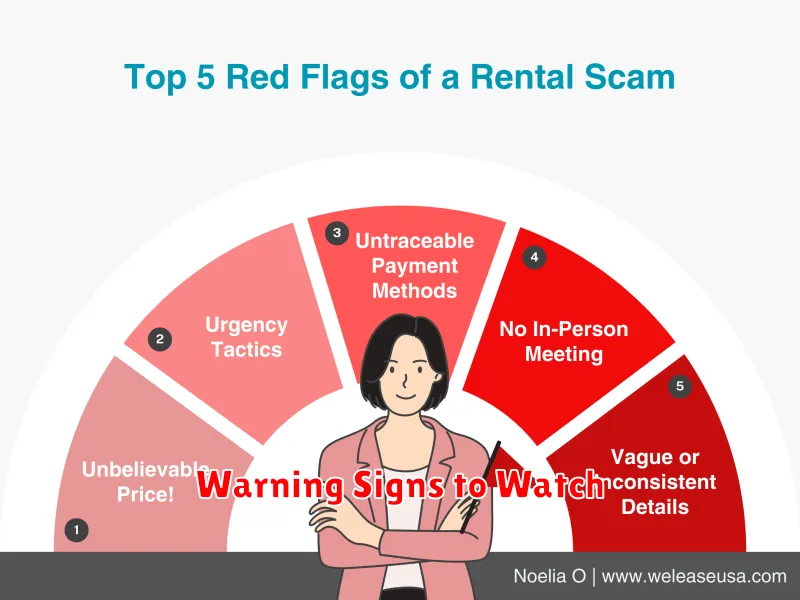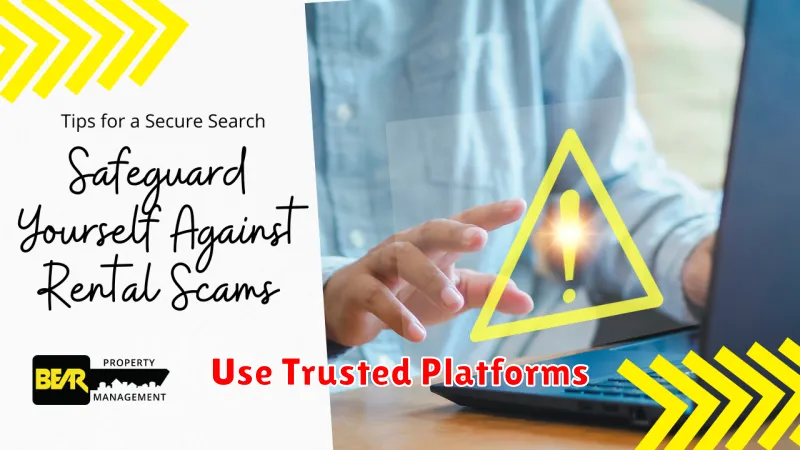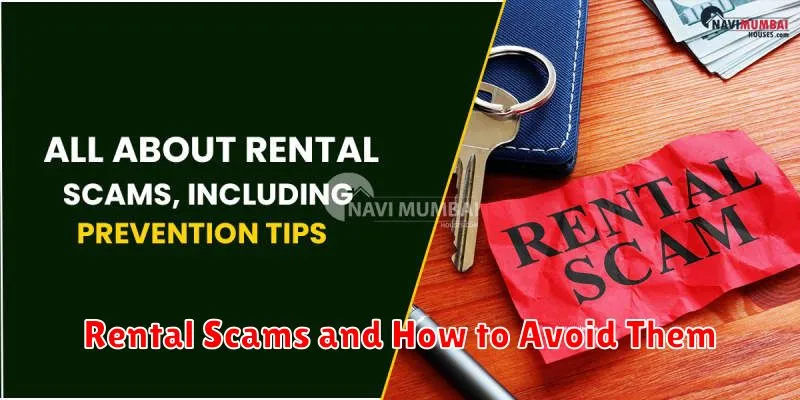Rental scams are unfortunately a common occurrence in today’s housing market. These scams can take various forms, from listings for properties that don’t exist to requests for upfront fees before viewing a rental. Falling victim to a rental scam can result in significant financial loss and considerable stress. This article aims to provide you with essential information about identifying common rental scams and practical steps to protect yourself from becoming a victim. Understanding the tactics used by scammers is crucial for navigating the rental market safely and securing legitimate housing.
Finding a suitable rental property can be challenging, and scammers often prey on individuals eager to secure a place quickly. They create convincing listings with attractive photos and below-market prices to lure potential renters. We will explore the red flags to watch out for when searching for rentals, including requests for unusual payment methods, discrepancies in listing information, and high-pressure tactics. By being aware of these common rental scam indicators, you can avoid falling prey to fraudulent schemes and make informed decisions in your rental search.
Common Rental Scams
Bait-and-Switch: This scam involves advertising a desirable property at a low price. Once you inquire, the scammer claims it’s been rented but offers a less appealing, more expensive alternative. They are counting on you being desperate enough to accept the second offer.
Phantom Rentals: These are listings for properties that don’t exist or that the scammer doesn’t have the right to rent. They often use photos stolen from legitimate listings. The goal is to collect application fees or even security deposits before you realize it’s a fraud.
Hijacked Ads: Scammers copy legitimate rental ads and repost them with lower prices and different contact information. This can be particularly difficult to spot, as the property details and photos will seem genuine.
Application Fee Scams: Some scammers focus solely on collecting application fees. They may post numerous fake listings to maximize the number of applications they receive. The “rental” is never actually available.
Warning Signs to Watch

Being aware of common red flags can protect you from rental scams. Be wary if a listing seems too good to be true, especially if the rent is significantly below market value. This is often a tactic used to lure potential victims.
Requesting upfront payment before a viewing or lease signing is another major warning sign. Legitimate landlords typically require a security deposit and first month’s rent after a lease agreement is signed.
High-pressure tactics, such as demanding immediate payment or claiming numerous other interested parties, should also raise concerns. Take your time to thoroughly research the property and landlord.
Inconsistent details about the property or the landlord’s story can be indicative of a scam. Verify the information provided with publicly available records if possible.
Finally, refusal to meet in person or tour the property is a clear red flag. A legitimate landlord should be willing to show you the rental unit.
Never Pay Without Visiting
One of the most important rules to avoid rental scams is to never pay any money before visiting the property in person. Scammers often pressure potential renters to pay a deposit or even the first month’s rent sight unseen. This is a major red flag.
A legitimate landlord will always allow, and even encourage, a prospective tenant to view the property. This gives you the opportunity to confirm the property’s condition, location, and advertised features match the listing. It also allows you to meet the landlord or property manager, further verifying their legitimacy.
Inspecting the property beforehand protects you from various deceptive practices. For example, the property might not exist, be significantly different from advertised, or already be occupied.
Verify Ownership and Listings
One crucial step in avoiding rental scams is verifying the legitimacy of the property and its listing. Confirm the owner’s identity. If you’re dealing directly with a landlord, ask for proof of ownership, such as a property tax statement. For listings handled by a real estate agent, verify their license and affiliation with a reputable agency.
Scrutinize the listing details. Look for inconsistencies or red flags. Is the price suspiciously low compared to similar properties in the area? Are the photos overly generic or do they appear stolen from other listings? These can be warning signs of a fraudulent listing.
Independently verify the address. Use online mapping tools to ensure the property exists and matches the description provided. Check public records for property ownership information. If possible, consider driving by the property to confirm its appearance and condition.
Use Trusted Platforms

One of the most effective ways to avoid rental scams is to use well-established and reputable platforms. These platforms often have built-in security measures and verification processes that help to screen out fraudulent listings and individuals.
Research various platforms and choose one known for its commitment to security and user safety. Look for platforms that offer secure payment methods, clear communication channels, and verified listings.
Avoid using less-known platforms or engaging in transactions outside of the platform’s secure system. Direct communication and off-platform payments significantly increase your risk of encountering a scam.
Report Suspicious Listings
If you encounter a suspicious rental listing, reporting it can help prevent others from falling victim to a scam. Reporting these listings assists platforms in identifying and removing fraudulent activity. It also contributes valuable data to law enforcement agencies tracking rental scams.
Where to Report:
- The platform hosting the listing: Most rental websites and apps have clear reporting mechanisms. Look for options like “Report Listing” or “Flag as Suspicious.” Provide specific details about why you believe the listing is fraudulent.
- Local law enforcement: If you believe you are a victim of a rental scam, contact your local police or sheriff’s department. They can guide you through the necessary steps to file a report and potentially recover losses.
- Consumer protection agencies: Filing a complaint with your state or federal consumer protection agency can help track widespread scam patterns and contribute to investigations.
Providing Detailed Information: When reporting a suspicious listing, include as much information as possible, such as the listing ID, the property address, the landlord’s contact information, and any specific details that raised your concerns. Screenshots of the listing and any communication with the suspected scammer are also valuable.

